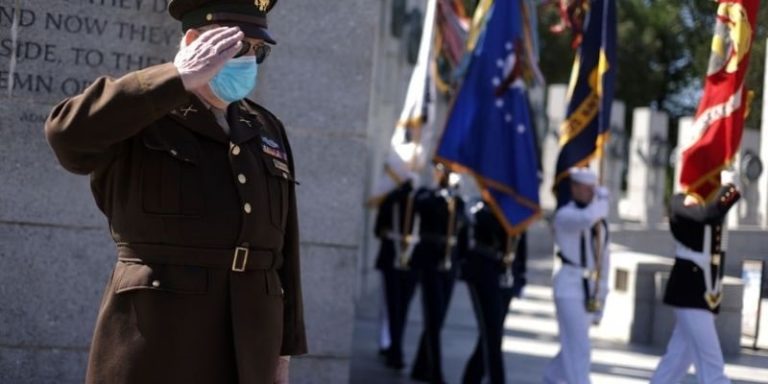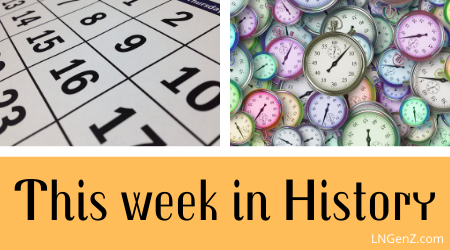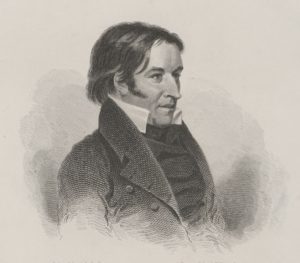This Week in History: August 14 – 20
Japanese surrender and V-J Day.
By: Kelli Ballard | August 14, 2022 | 948 Words

(Photo by Alex Wong/Getty Images)
“The charm of history and its enigmatic lesson consist in the fact that, from age to age, nothing changes and yet everything is completely different.” ~ Aldous Huxley
August 14, 1945: V-J Day
On this day, Japanese Emperor Hirohito formally surrendered to the Allies, effectively ending his nation’s par World War II (1939 – 1945). This became known as V-J Day or “Victory Over Japan Day.” The war had ended in Europe in May 1945, but fighting continued in the Pacific.
The war lasted for six years, but Americans managed to stay out of the global conflict until the Japanese attacked Pearl Harbor in Hawaii on December 7, 1941. The US declared war the very next day, and then Germany, led by Adolf Hitler, declared war on America. This is when it truly became a world war.
During the conflict, Japan invaded a big part of the Asia-Pacific region, including Korea, South-eastern China, and most Southeast Asian countries, such as the Philippines, Indonesia, and Thailand. The US and other Allied nations (including Australia, New Zealand and Asian members of the British Empire) sent troops to fight the Japanese takeover.
In 1945, America began dropping explosives on Japanese cities, including about 100,000 tons between March and July of that year. On July 26, 1945, allied leaders issued the Potsdam Declaration to Japan, calling on the country to surrender. If agreed, the nation could have a peaceful government with “the freely expressed will of the Japanese.” However, the US and allies warned, should Japan refuse, it would face “prompt and utter destruction.”
Japan refused, and on August 6, an American B-29 plane dropped an atomic bomb on the city of Hiroshima. More than 70,000 people died. Then, just three days later, the US dropped another, this time on Nagasaki, which killed about 40,000 more people. These were the first nuclear bombs ever dropped on a population – and still the only ones, because the effects were so devastating.
By August 14, Japan had formally surrendered. Emperor Hirohito sent a radio broadcast to his people, urging them to accept the terms, saying the “new and most cruel bomb” was responsible for the change of mind. “Should we continue to fight,” Hirohito warned, “it would not only result in the ultimate collapse and obliteration of the Japanese nation but would also lead to the total extinction of human civilization.”
On August 14, 1945, President Harry Truman announced that Japan had surrendered, beginning the honorary V-J Day holiday. The formal ceremony for Japan’s surrender didn’t happen until September 2, in Tokyo Bay on board the USS Missouri.
Other Notable History Mentions
August 14, 1935: The Social Security Act was established after President Franklin Roosevelt signed it into law. It guarantees pensions to people who retire once they reach a certain age. It also helps provide aid to the blind and dependent children.
August 14, 1941: President Roosevelt issued the Atlantic Charter with British Prime Minister Winston Churchill. It set a foundation for establishing the United Nations and set goals for all nations of the world including right to self-government, freedom of the seas, and disarmament of aggressor nations.
 August 15, 1969: Woodstock began. It was a three-day concert with 24 rock bands held in a field near Yasgur’s Farm at Bethel, New York. More than 300,000 people attended.
August 15, 1969: Woodstock began. It was a three-day concert with 24 rock bands held in a field near Yasgur’s Farm at Bethel, New York. More than 300,000 people attended.
August 16, 1896: The Great Klondike Gold Rush began after gold was discovered in Rabbit Creek, part of the Klondike River in Alaska.
August 16, 1977: Rock-n-roll legend Elvis Presley died at age 42.
August 17, 1943: The Allies took the island of Sicily During World War II after 38 days. This gave them control of the Mediterranean and led to Benito Mussolini’s downfall.
August 17, 1978: Ben Abruzzo, Max Anderson, and Larry Newman became the first Americans to complete a transatlantic balloon trip.
August 17, 1998: Bill Clinton became the first president in office to give testimony before a grand jury in which he was the focus of the investigation.
August 18, 1920: The 19th Amendment was ratified. This gave women the right to vote.
August 19, 1934: A plebiscite (special vote) was held in Germany. Chancellor Adolf Hitler was approved to become president with 89.9% of the vote.
August 19, 1991: Soviet communists staged a coup, which removed Mikhail Gorbachev from power. However, it only lasted 72 hours before Boris Yeltsin rallied the Russians and took over. The Communist Party was banned soon afterward.
Famous Birthdays
Napoleon Bonaparte (August 15, 1769) was born on the island of Corsica. He became emperor of France after the French Revolution.
T.E. Lawrence “of Arabia” (August 16, 1888) was born in Tremadog, North Wales. He was a British spy and led an Arab revolt against the Turks during World War I.

Davy Crockett (Photo by Heritage Images/Getty Images)
Menachem Begin (August 16, 1913) was born in Brest-Litovsk, Poland. He fought to establish a Jewish state in Palestine and became prime minister of Israel in 1977. He is best known for signing the Camp David Peace Accord in 1979 between Egypt and Israel with American President Jimmy Carter and President Anwar el-Sadat of Egypt.
Davy Crockett (August 17, 1786) was born in Hawkins County, Tennessee. He was a farmer, scout, and politician, as well as a famous American frontiersman. He died while defending the Alamo in Texas.
Meriwether Lewis (August 18, 1774) was born near Charlottesville, Virginia. He explored the American West with William Clark. It took 18 months, but in 1805, they reached the Pacific Ocean.
Orville Wright (August 19, 1871) was born in Dayton, Ohio. He and his brother Wilbur built the world’s first controlled flight of a motor-driven aircraft.
Bill Clinton (August 19, 1946) was born in Hope, Arkansas. He was the 42nd president of the US.
Benjamin Harrison (August 20, 1833) was born in North Bend, Ohio. He was the 23rd president of the US and the grandson of William Henry Harrison, the ninth president.
















